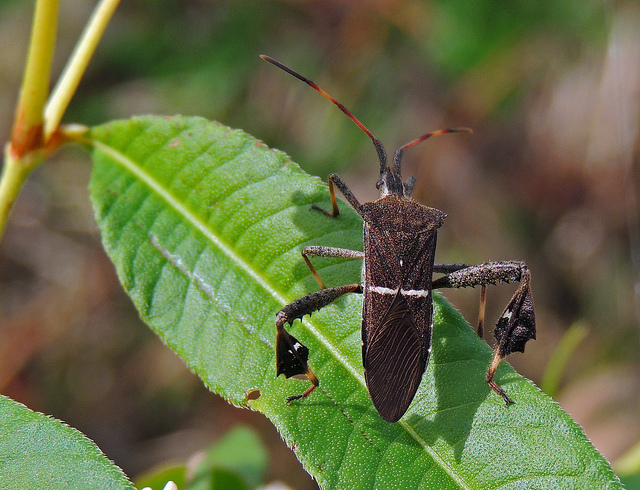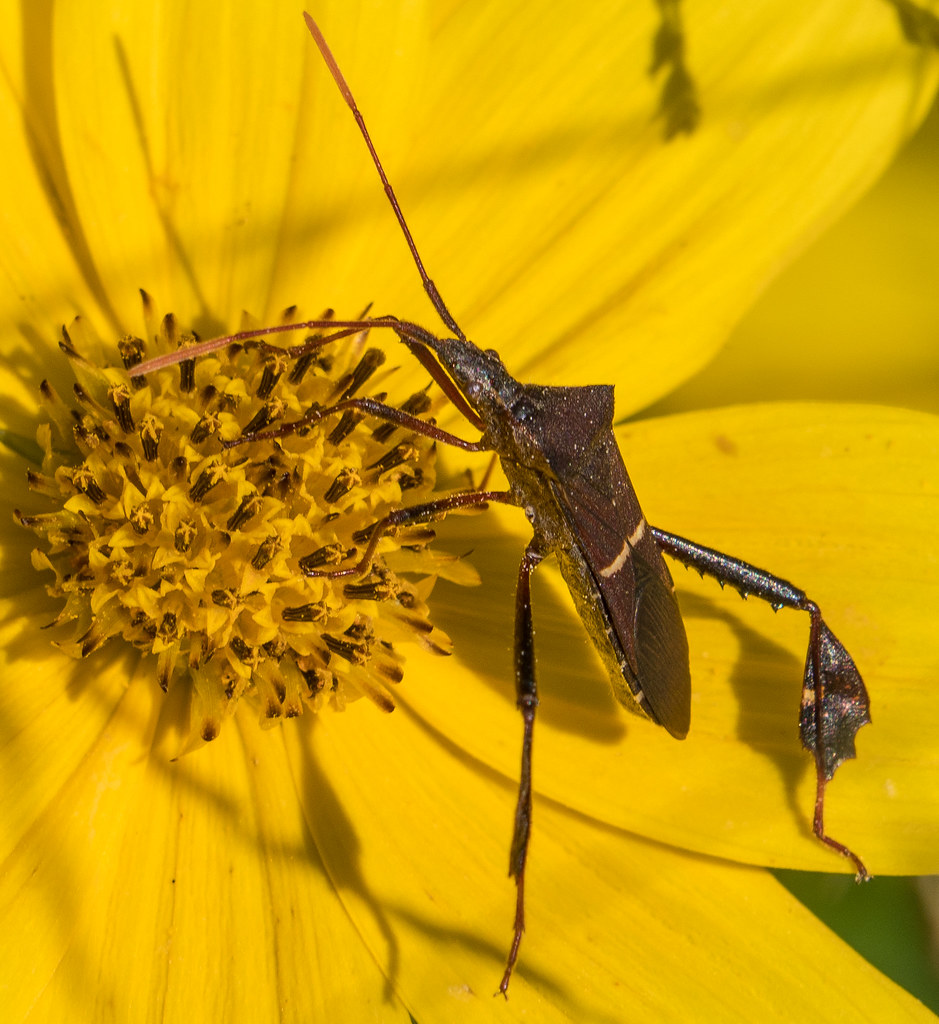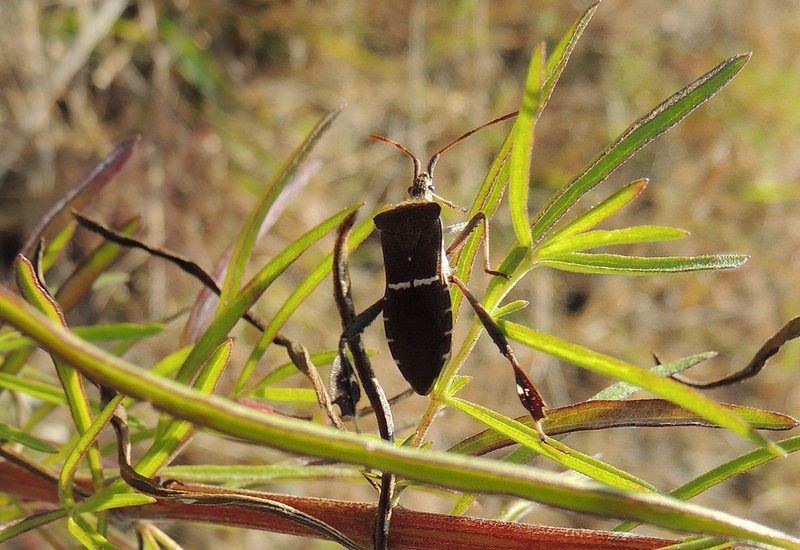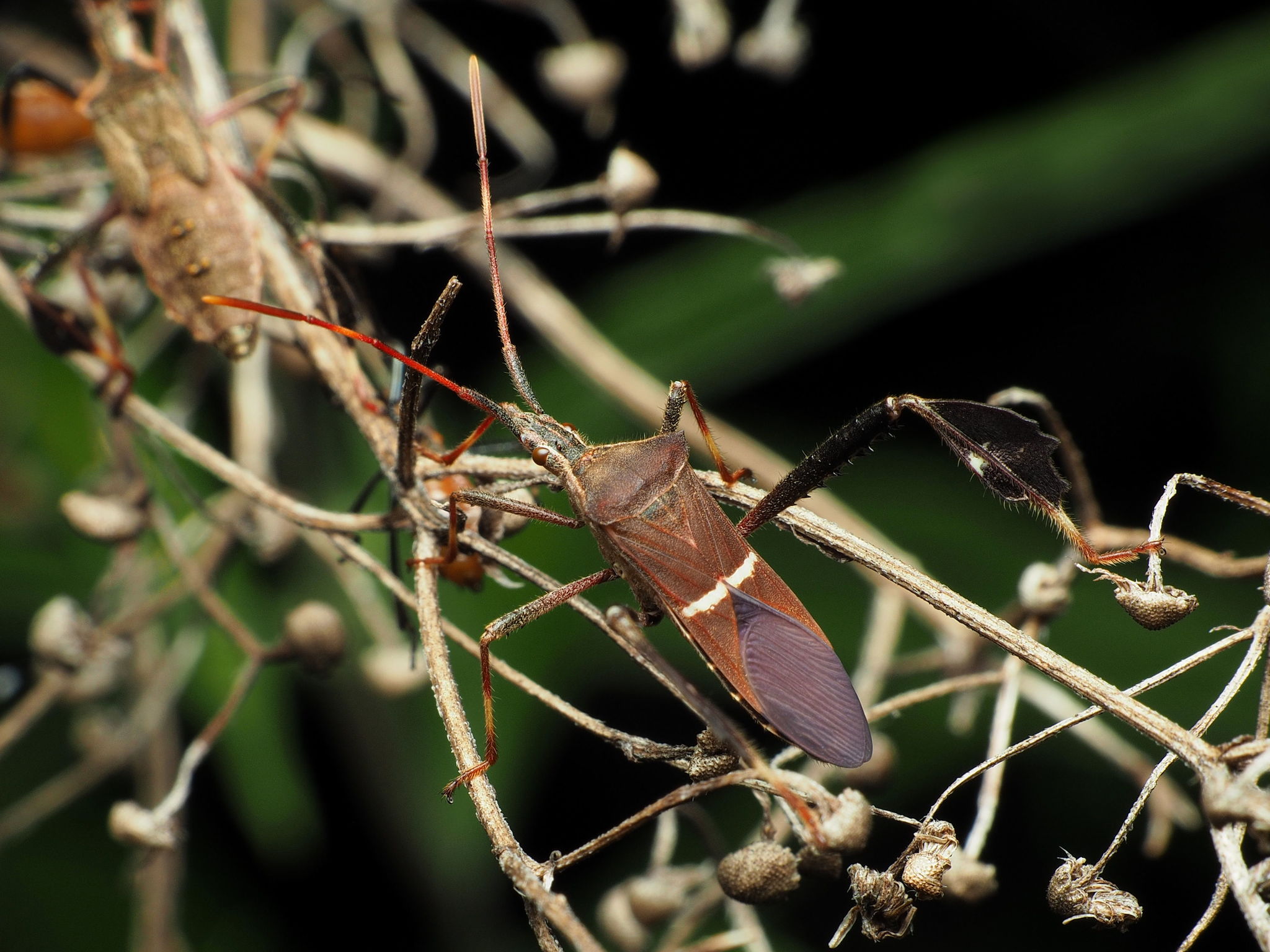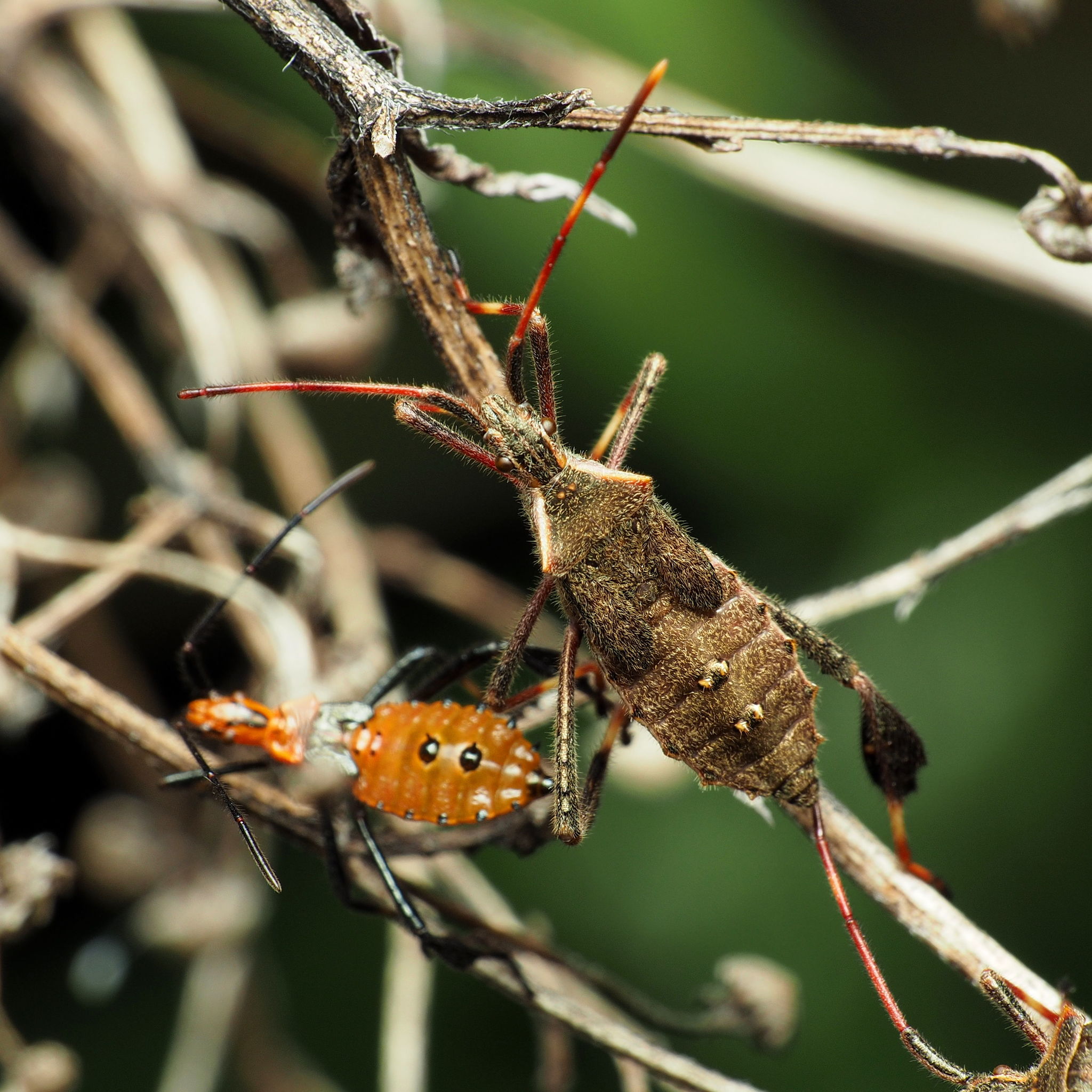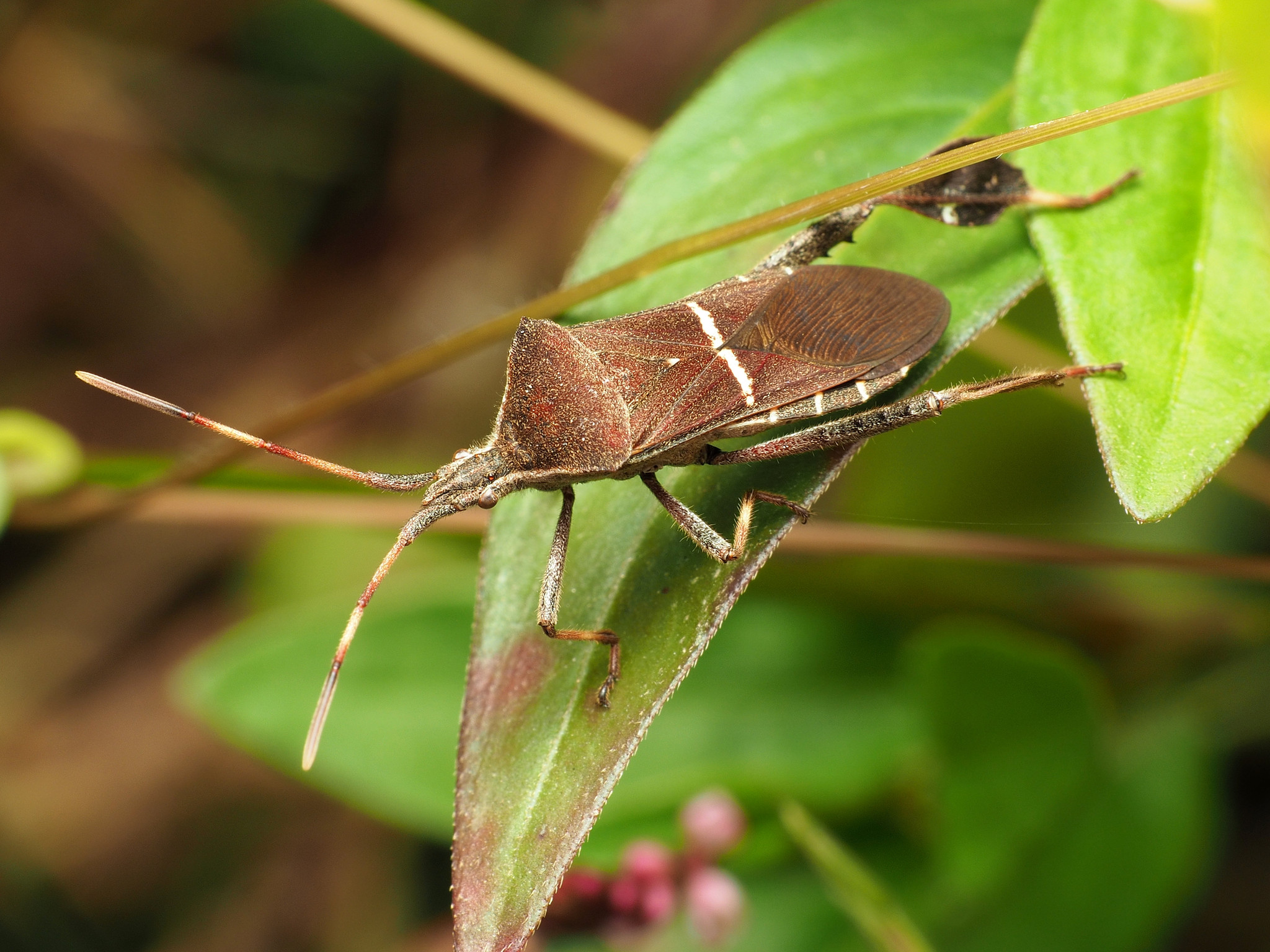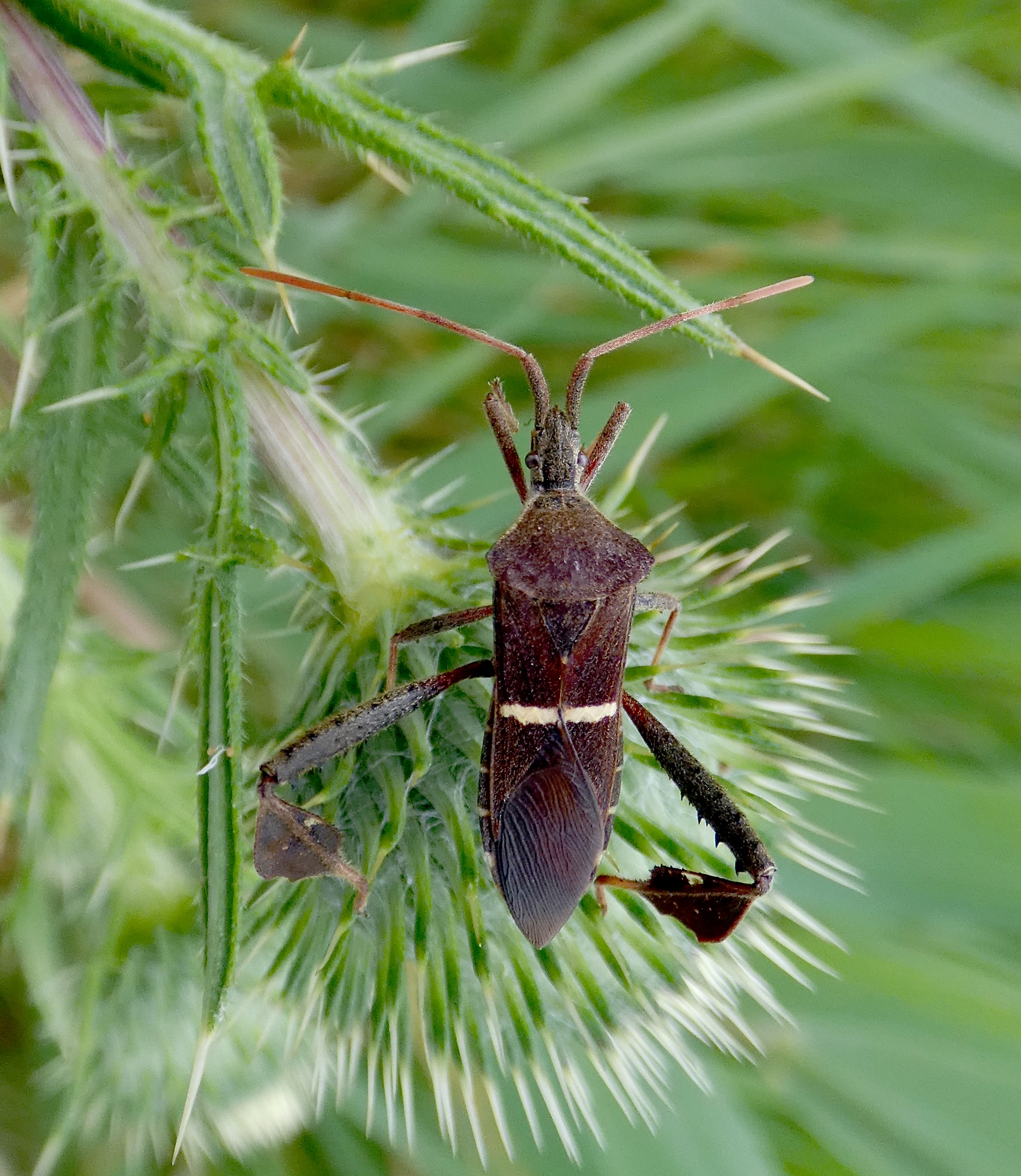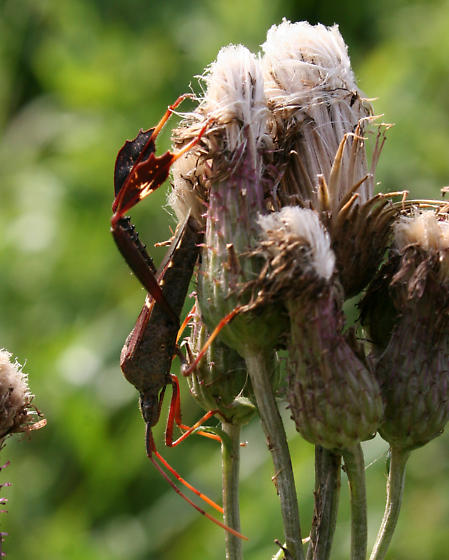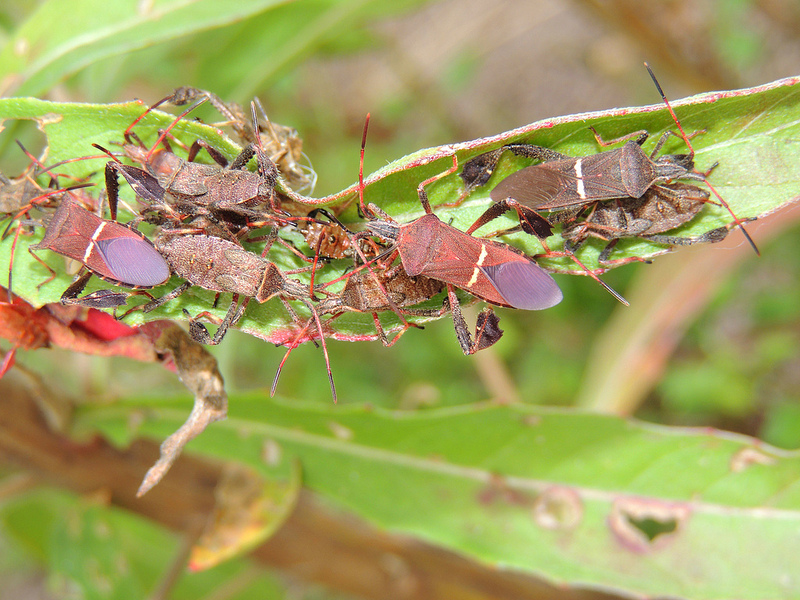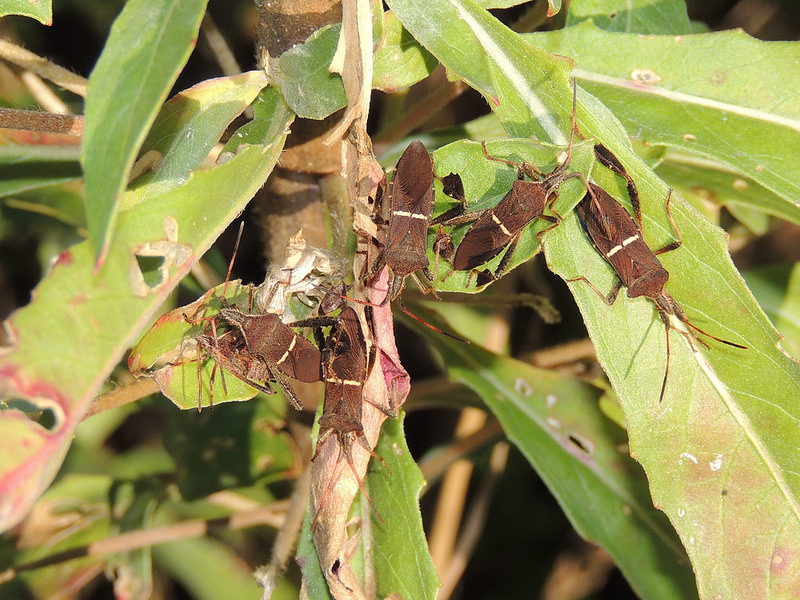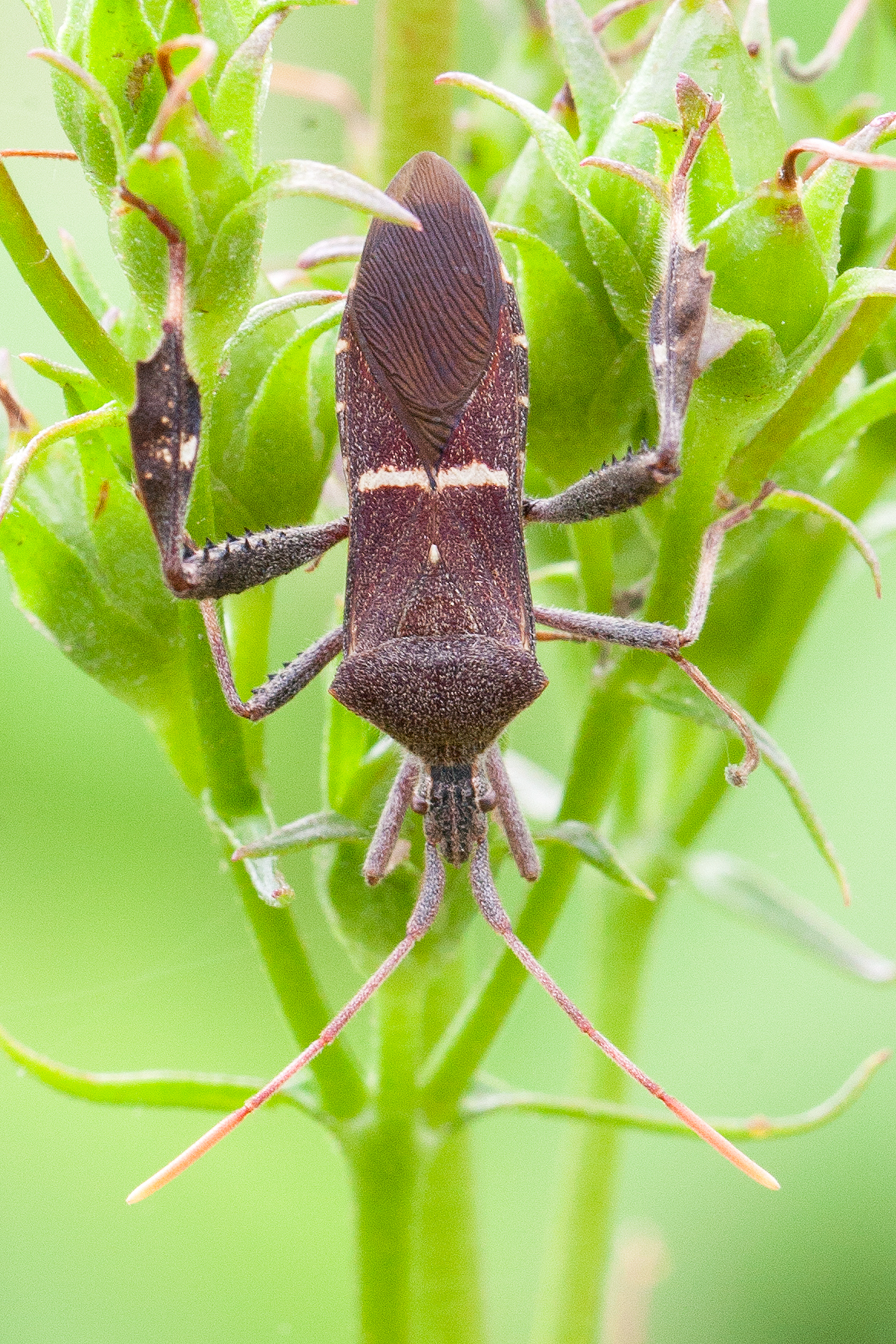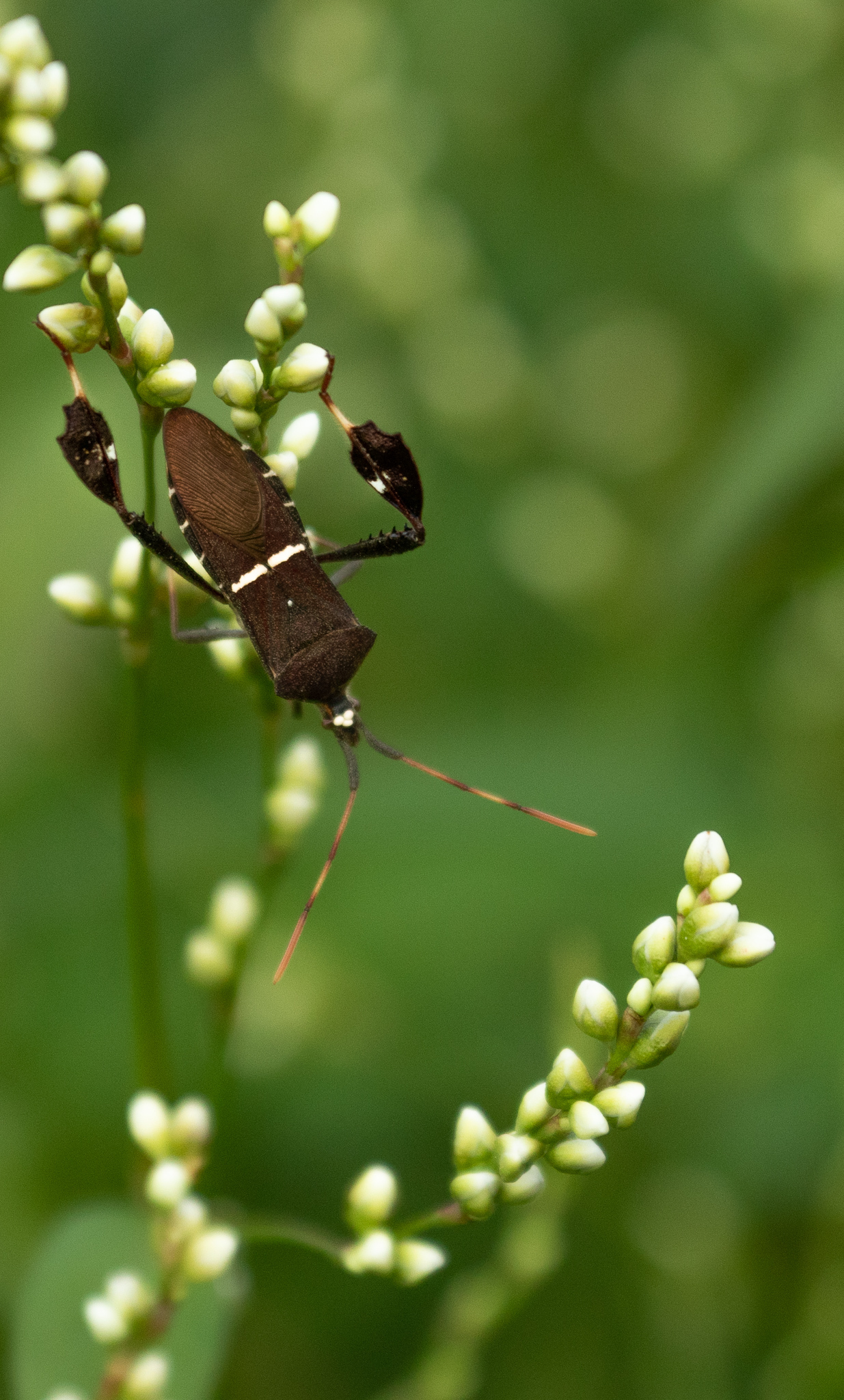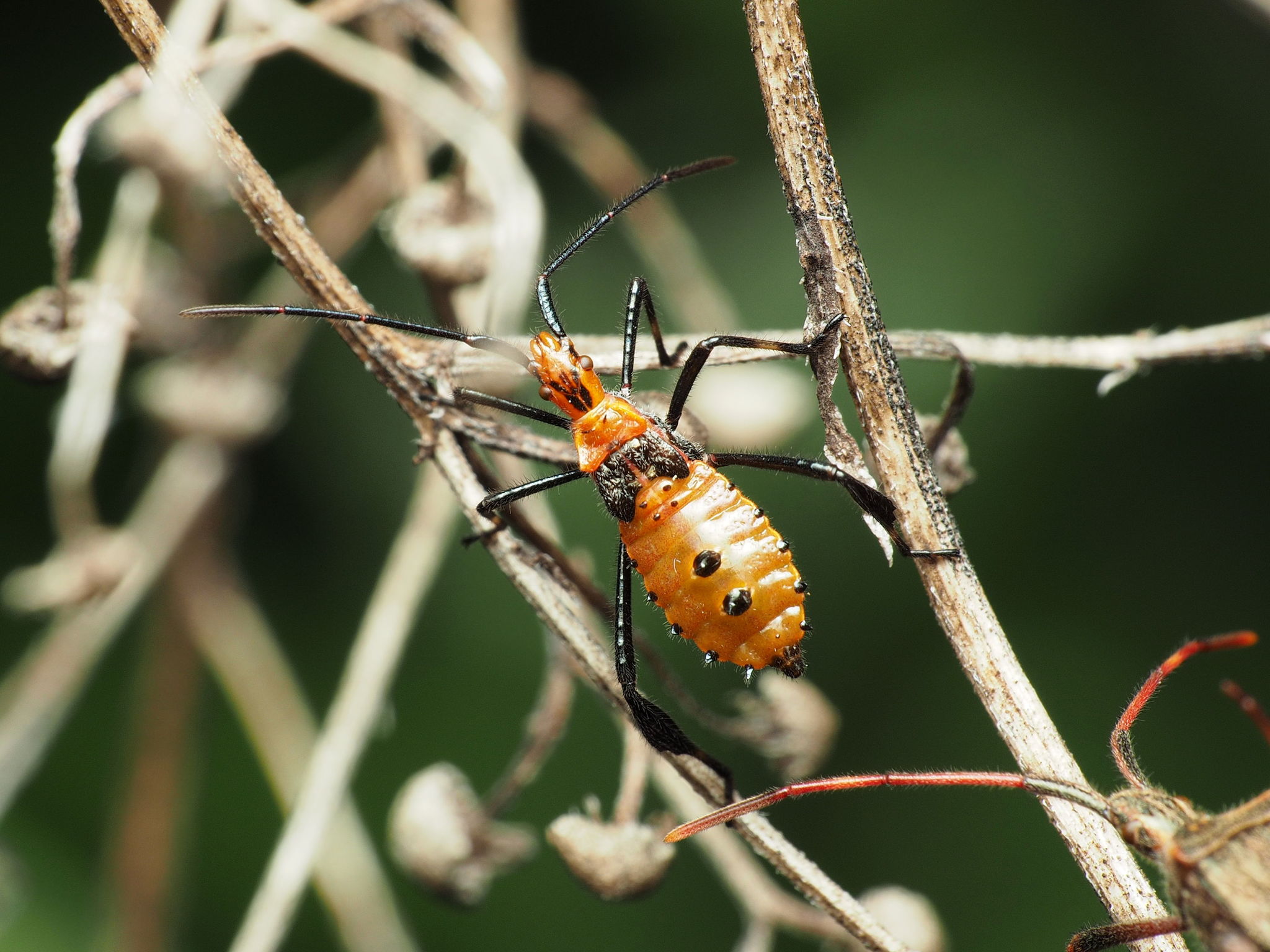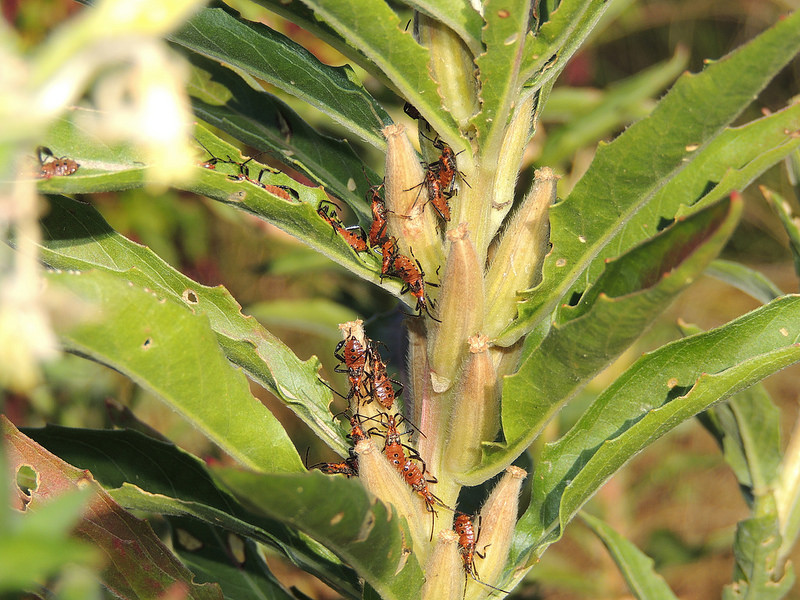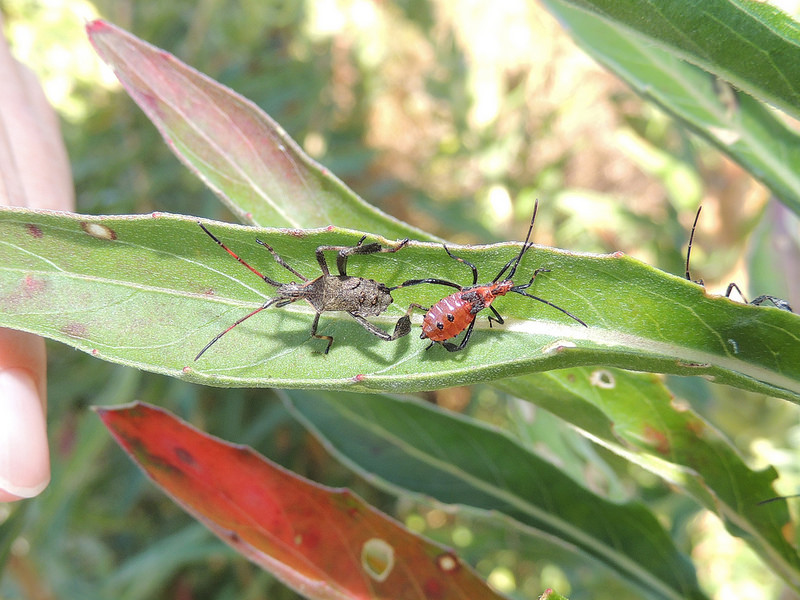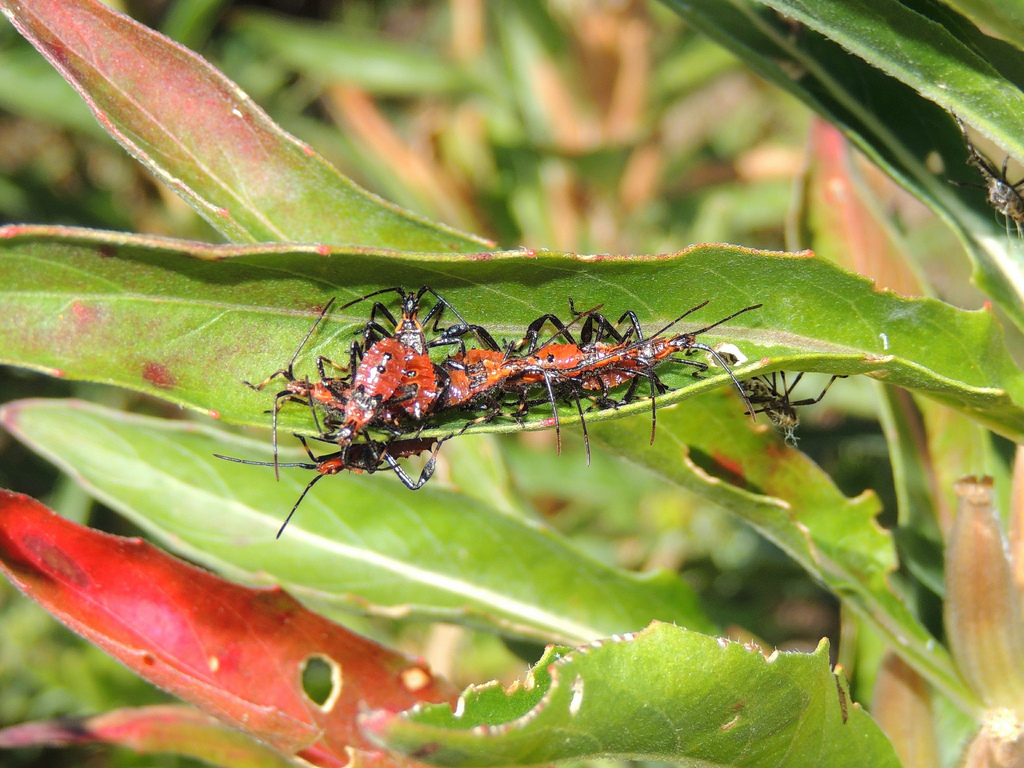Map Snapshot
















95 Records
Seasonality Snapshot
Source: Wikipedia
| Leptoglossus phyllopus | |
|---|---|

| |
| Leptoglossus phyllopus on Pennisetum glaucum | |
| Scientific classification | |
| Domain: | Eukaryota |
| Kingdom: | Animalia |
| Phylum: | Arthropoda |
| Class: | Insecta |
| Order: | Hemiptera |
| Suborder: | Heteroptera |
| Family: | Coreidae |
| Genus: | Leptoglossus |
| Species: | L. phyllopus
|
| Binomial name | |
| Leptoglossus phyllopus | |
Leptoglossus phyllopus or eastern leaf-footed bug is a species of leaf-footed bugs in the same genus as the western conifer seed bug (L. occidentalis. The Eastern leaf-footed bug is found throughout the southern United States, from Florida to California, through Mexico, and as far south as Costa Rica.[1]
These bugs are a common garden insect which may damage a wide variety of crops including cotton, peaches and tomatoes, and seeds such as beans, black-eyed peas and sorghum.[2] Like other bugs L. phyllopus suck juices from plants by puncturing them with their sucking mouth parts, making them resistant to ingested pesticides. A toxin is injected into the plant when piercing its skin, causing discoloration and hard spots on fruits.[3] The adult bugs are highly resistant to pesticides; however, they are vulnerable in their bright orange nymph stage. Trap crops can be used to lure them away from desired plants and to encourage predator populations,[4] and in small garden plots handpicking, the use of trap crops, and bug traps baited with methyl (E, Z)-2,4-decadienoate can be effective controls.[5]
Acetosyringone is produced by the male leaffooted bug and used in its communication system.[6][7][8] Leptoglossus phyllopus emits a foul odor when it is handled[9]


References
[edit]- ^ "Leaffooted bug - Leptoglossus phyllopus (Linnaeus)".
- ^ https://texasinsects.tamu.edu/leaffooted-bug/ Leaffooted Bug, Field Guide to Common Texas Insects
- ^ "P&dc_12".
- ^ "Trap Crops for Management of Stink and Leaffooted Bugs". Archived from the original on 2011-08-18.
- ^ "ENY-718/IN534: Stink Bugs and Leaffooted Bugs Are Important Fruit, Nut, Seed and Vegetable Pests". Archived from the original on 2013-06-02. Retrieved 2013-06-07.
- ^ Acetosyringone on www.pherobase.com, the pheromones data base
- ^ Male specific natural products in the bug, Leptoglossus phyllopus: Chemistry and possible function. J.R. Aldrich, M.S. Blum, S.S. Duffey and H.M. Fales, Journal of Insect Physiology, Volume 22, Issue 9, 1976, Pages 1201-1206 doi:10.1016/0022-1910(76)90094-9
- ^ Species-specific natural products of adult male leaf-footed bugs (Hemiptera: Heteroptera). J. R. Aldrich, M. S. Blum and H. M. Fales, Journal of Chemical Ecology, Volume 5, Number 1, 53-62, doi:10.1007/BF00987687
- ^ "Leaffooted bug". Archived from the original on 2004-04-14.
External links
[edit] Data related to Leptoglossus phyllopus at Wikispecies
Data related to Leptoglossus phyllopus at Wikispecies- leaffooted bug on the UF / IFAS Featured Creatures Web site
- Stink Bugs and Leaffooted Bugs Are Important Fruit, Nut, Seed and Vegetable Pests1 Archived 2009-08-05 at the Wayback Machine again from UF / IFAS

